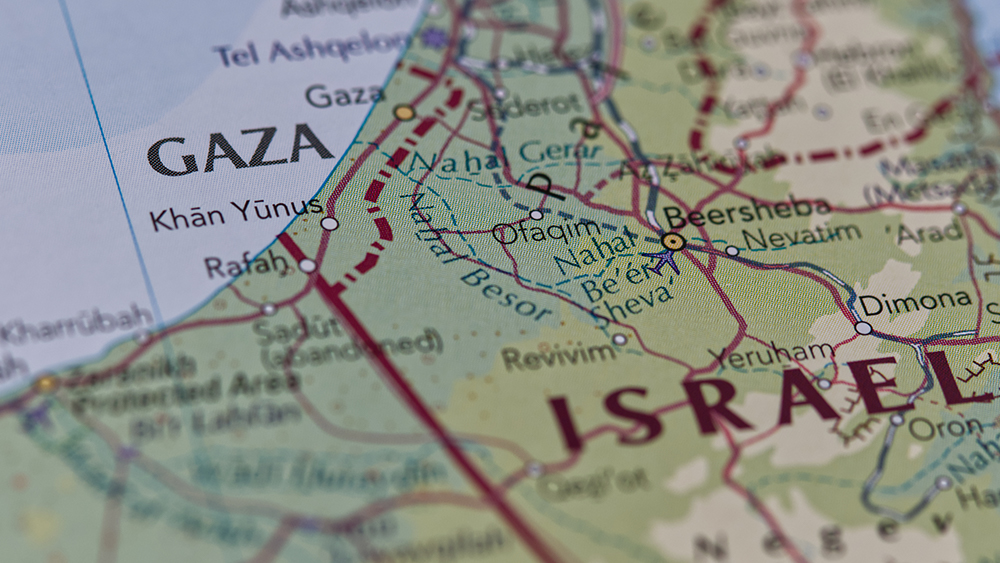- Hamas has signaled a willingness to halt military operations and transfer Gaza’s governance to Palestinian technocrats under a long-term truce, contingent on Israeli concessions.
- Israel remains skeptical, demanding Hamas’s disarmament, while the group refuses to surrender weapons, though it may consider storing them under foreign supervision.
- Egypt and Qatar are key mediators, proposing reconstruction aid and arms monitoring, but Netanyahu’s rejection of Palestinian Authority involvement complicates post-war governance options.
- Gaza’s humanitarian crisis worsens as civilian casualties rise, infrastructure collapses, and Israel’s Rafah offensive intensifies shortages of essential supplies.
- Despite diplomatic efforts, distrust between Hamas and Israel threatens to derail ceasefire talks, with no clear path to lasting peace or governance stability in Gaza.
As negotiations for a ceasefire in Gaza intensify, Hamas has reportedly signaled a willingness to halt military operations and relinquish control of the besieged territory if a durable peace agreement is reached. The militant group’s unprecedented flexibility, conveyed through Arab mediators, raises critical questions about Gaza’s political future, Israel’s war aims, and whether any truce can sustainably end the bloodshed that has claimed tens of thousands of lives.
Hamas’s shifting demands and Gaza’s uncertain future
According to sources cited by The Times of Israel, Hamas informed mediators last week that it would agree to a long-term truce, stop developing weapons, and freeze tunnel construction if Israel reciprocates. More notably, the group is said to be open to transferring governance to an «independent body of Palestinian technocrats,» aligning with an Egyptian proposal for post-war administration.
However, skepticism persists. While Hamas claims it would accept a transitional Palestinian-led government, Prime Minister Benjamin Netanyahu has repeatedly rejected the involvement of the Palestinian Authority (PA), calling its leadership corrupt and ineffective. If Hamas steps aside, no clear alternative exists, raising fears of a governance vacuum that could destabilize Gaza further.
The stakes for Israel, the region, and the U.S.
Israel insists that any lasting deal must guarantee Hamas’s military disarmament, yet the group has publicly refused to surrender its weapons, calling them a «red line.» Some reports suggest Hamas may compromise by storing arms under foreign supervision, but Israel’s vow to continue fighting until «total victory» casts doubt on whether such measures would satisfy its security demands.
Meanwhile, Egypt and Qatar remain deeply invested in brokering a solution. Cairo has proposed a reconstruction plan involving billions in aid and an Arab-monitored weapons storage system as part of an effort to prevent future conflicts. For Qatar, a mediator with ties to both Hamas and the West, the negotiations are a test of its diplomatic influence. The U.S., too, faces pressure to secure the release of remaining hostages and stabilize the region, though its leverage over Netanyahu’s hardline government appears limited.
Humanitarian crisis and the toll of war
Gaza’s civilian population continues to bear the brunt. With more than 51,000 Palestinians reportedly killed to date, including many women and children, and Israel’s military operations expanding in Rafah, conditions continue to grow direr. Recent airstrikes have destroyed vital infrastructure, including bulldozers used for rescue efforts, exacerbating shortages of food, water, and medical supplies.
Even as Hamas signals flexibility, Netanyahu’s refusal to end hostilities without «destroying Hamas» prolongs the suffering. Critics argue that Israel’s campaign has been both disproportionate and strategically flawed, failing to neutralize Hamas while deepening regional animosity.
The latest proposal brokered by Qatar and Egypt envisions a years-long truce, hostage exchanges, and an Israeli withdrawal. Yet with Netanyahu’s coalition reliant on far-right factions and Hamas split between political pragmatism and militant resistance, skepticism abounds.
One certainty remains: Without a credible plan for Gaza’s governance and reconstruction, any ceasefire may only be a temporary pause in a cycle of violence with no end in sight.
Sources for this article include:
